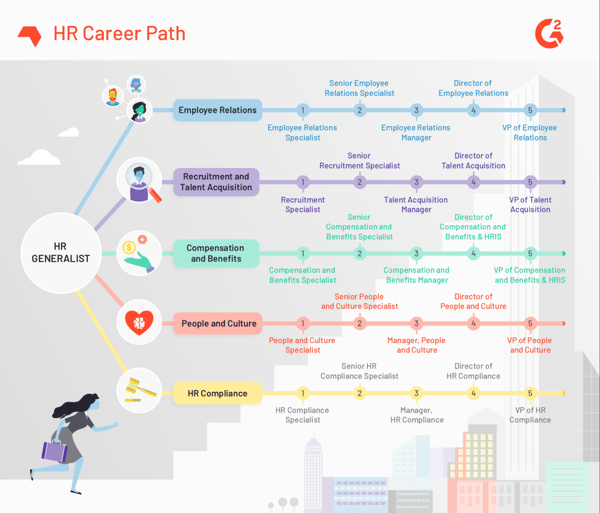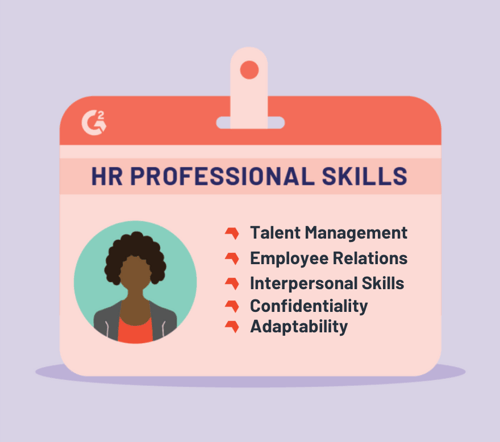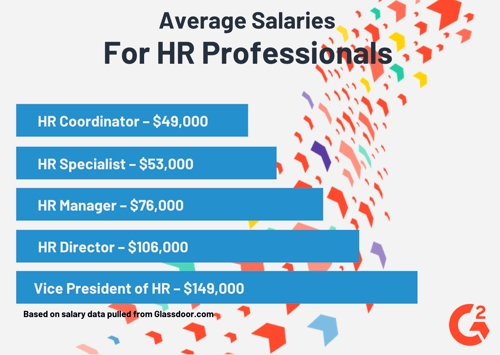
What do you and your career path have in common? You’re both unique!
Career planning is something every professional should keep at the forefront of their minds. Your career path is unique to you and your experiences. While there isn’t a single correct way to map your career growth, there are things you can do to plan ahead.
A human resources career path is unique in that there are several different roads you can take as your career unfolds. With so many HR specialties and job descriptions, it can seem daunting for the HR newcomer to try and decide which path to take.
We can’t tell you what company to work for or which job offer to take, but we can give you the tools you need to make those decisions for yourself.
Finding a stride in your career is about patience and planning. You’ll likely run into roadblocks and resistance while planning your human resources career path – and that’s okay! Knowing how to readjust and keep your eyes on where you’re headed is the most important factor for career success. These six helpful tips will help you carve out your human resources career path and jumpstart your professional life.
Before you fall down the rabbit hole of HR job postings and dream companies, you need to know where you’re going. The human resources field is full of different specialities, job requirements, and buzzwords. Understanding where you want your career path to take you will prevent you from wasting time in a job search.

That's a lot of information, which is why a career plan is vital to your career growth. What is a career plan? It’s a collection of your dreams, passions, skills, and where you want to go in your career. The great thing about a career plan is that you can make it as detailed as you’d like. Some people create a career plan that spans the entirety of their career, while others only plan a few years ahead at a time.
The purpose of creating a career plan is to get your brain working. Thinking about your human resources career path can be overwhelming. A career plan is the perfect way to get all your thoughts straight and hone in on where you want to go – more importantly, how you’re going to get there.

Once you have an idea of where you want to take your career, it’s time to figure out the skills you need. Just like a lawyer or a doctor, human resources requires a special set of skills. It’s important to know what skills will take you far when planning your human resources career path.
Every company and position will require unique challenges and different skills for success. However, there are a few core skills that every HR professional should have.

These are just a few of the overarching skills that most HR professionals need. You may need additional skills depending on which human resources career path you choose. For example, if you’re hoping to get a job dealing with labor laws or legal compliance, most companies will expect you to have a law degree.
| Tip: Check of these 9 human resources skills employers and looking for and learn how to highlight them on your resume |
Now that you’ve planned your career path and pinpointed your marketable skills, you’ll need to decide which jobs to target. Human resources has a variety of career paths that suit varying skill sets differently. If you have an accounting background, then compensation and benefits might be a perfect fit. If employee advocacy is more your speed, you might consider a path in employee relations.
Each of the specialities listed above has certain job titles and career ladders associated with it. When planning your human resources career path, make sure the job you’re applying for fits into your broader career plan. You can consult websites like Glassdoor or LinkedIn to find what job titles are available for the position you’re looking into. You can also use these websites to conduct salary research.

The best way to decide which job title you should target is to Google the HR job titles that you want to pursue and read through the job descriptions. You’ll start to get a feel for which jobs suit your skills and career aspirations and which ones you can live without.
Tip: If you're interested in becoming a CHRO (Chief Human Resources Officer), here's what you'll need to know.
As an HR professional, you’re used to utilizing your people skills. Don’t stop using your network once you’ve landed a job; use those connections to your advantage. Opportunities open up for those who seek them. Even if you’re not looking to change careers or job hunt, there’s still a huge benefit to networking.
|
Here are a few ways you can expand your professional network:
|
Expanding your connections will have long-term benefits. The benefits of creating powerful connections with professionals you can learn from is invaluable. You can promote your own professional development outside of your current role and cultivate new skills that will help guide your human resources career path.
There are countless human resources career paths you can discover as you get further into your career. Many people make the mistake of locking themselves into a specific career path and never considering other options. This is a mistake because it can often blind you to new growth opportunities.
If you find yourself being presented with a new opportunity that doesn’t fit your career plan, don’t discount it right away. Weigh the pros and cons of taking this new opportunity. It may take you down a different human resources career path than you were planning, but is that a bad thing?
|
There are three things you should consider when being offered an alternative path:
|
Sometimes you can get so stuck in your 10-year plan that you can miss out on an opportunity for growth. Don’t be so rigid in your career planning that you grow stagnant. Be curious and explore new opportunities when they come your way!
| Tip: Ready to take the next step in your career? Read more about how to change careers. |
There will be times in your career when things don’t go as planned. These career disruptors can be roadblocks in your human resources career path. Understanding how to identify and deal with common career disruptors will help you avoid major missteps in your career planning.
|
A couple of common career disruptors you may encounter are:
|
As you can see, not every career disruptor is necessarily negative. A career disruptor is simply anything that comes up that you didn’t plan for. Understanding that these disruptions are a normal part of career planning will help you clearly navigate your human resources career path and beyond.
There’s a lot that goes into mapping a human resources career path. Ultimately, it comes down to knowing what you want out of your career and doing what it takes to get there. You have the knowledge on your side – now it’s time to get things done!
Ready to take your career into your own hands? Check out our career advice hub for everything you'll need for career growth.
Lauren Pope is a former content marketer at G2. You can find her work featured on CNBC, Yahoo! Finance, the G2 Learning Hub, and other sites. In her free time, Lauren enjoys watching true crime shows and singing karaoke. (she/her/hers)
Climbing the corporate ladder is a marathon, not a sprint – but that doesn’t mean you can't...
 by Lauren Pope
by Lauren Pope
Job-hunting is hard, so we’ve decided to make it easier.
 by Lauren Pope
by Lauren Pope
The MVP of your company just put in their two weeks notice – do you have an internal candidate...
 by Lauren Pope
by Lauren Pope
Climbing the corporate ladder is a marathon, not a sprint – but that doesn’t mean you can't...
 by Lauren Pope
by Lauren Pope
Job-hunting is hard, so we’ve decided to make it easier.
 by Lauren Pope
by Lauren Pope


